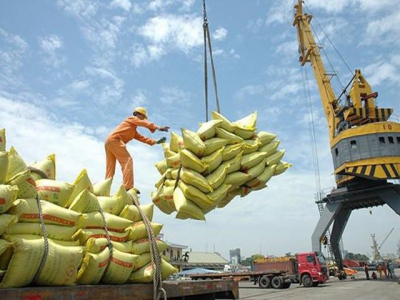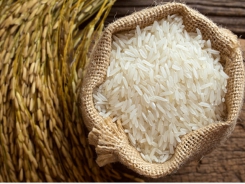Vietnam asserts its rice brand in demanding import markets

Vietnam's rice exports have grown in volume and value, making rice a highlight of Vietnam’s agricultural exports. Vietnamese rice has penetrated some very selective markets and gradually affirmed its brand.
Vietnam earned over 3 billion USD from rice export last year, with export prices ranging at between 680 USD and 1,000 USD per ton.
This year, rice exports continue to be strong. Two weeks ago, Vietnam exported 1,600 tons of rice to Singapore and Malaysia at a price of 680 to 740 USD a tone.
According to the Ministry of Agriculture and Rural Development, Vietnam's rice reached a record export value over the past decade thanks to new production methods and greater use of high-quality, fragrant rice varieties preferred by import markets in the US, the European Union, and Japan.
The Vietnam Food Association (VFA) said the price of Vietnamese rice is now higher than that of Thai rice because Vietnam is growing new varieties of specialty rice.
Nguyen Trung Kien, VFA’s vice chairman and secretary general, said, “By focusing on new rice varieties, Vietnam is accessing the mid-level and high-end markets. Vietnam enjoys a competitive advantage over neighbouring countries because it has a good source of high-quality rice varieties.”
Huynh Van Thon, Chairman of the Loc Troi Food Group, said that in recent years the group has adopted a sustainable rice production model in line with the international standard Sustainable Rice Platform (SRP).
This is the world’s first set of standards for sustainable rice production that balances economic, social, and environmental factors.
All of Loc Troi’s raw material areas - nearly 12,000 hectares – follow the SRP standard, which reduces the cost of pesticides 15% and protects both farmers and the environment.
Last year Loc Troi exported its first 126 tons of fragrant rice to the EU market under the EU-Vietnam Free Trade Agreement.
“We’ve proved that Vietnamese farmers and businesses can meet the stringent quality standards set by the EU, a high-end market, by restructuring rice production, improving product quality, and using new rice varieties, advanced cultivation methods, material production zones, and origin tracing,” said Thon.
Le Quoc Doanh, Deputy Minister of Agriculture and Rural Development, sees a positive outlook for Vietnamese rice exports due to growing demand.
He called on localities, businesses and farmers to develop organic products that generate greater profits and protect the environment and underscored the need for value added processing and exploiting tariff preferences from free trade agreements.
“Rice exports continue to show strength. The Mekong Delta has planted more than 1.5 million hectares of rice, which is growing very well. 85% of the region’s varieties are high-quality rice, specialty rice, or fragrant rice. Demand is on the rise and export prices are at record levels,” Doanh added.
Có thể bạn quan tâm
Phần mềm

Phối trộn thức ăn chăn nuôi

Pha dung dịch thủy canh

Định mức cho tôm ăn

Phối trộn phân bón NPK

Xác định tỷ lệ tôm sống

Chuyển đổi đơn vị phân bón

Xác định công suất sục khí

Chuyển đổi đơn vị tôm

Tính diện tích nhà kính

Tính thể tích ao hồ



 Vietnam agro-forestry-fisheries exports to reach US$50 billion revenue…
Vietnam agro-forestry-fisheries exports to reach US$50 billion revenue…  Bangkok Post highlights Vietnam's clever rice strategy
Bangkok Post highlights Vietnam's clever rice strategy